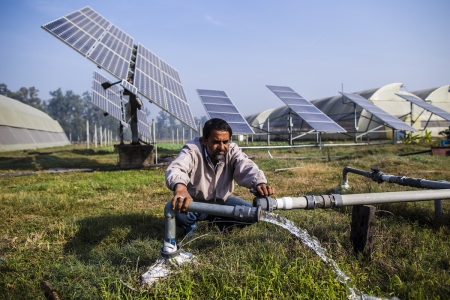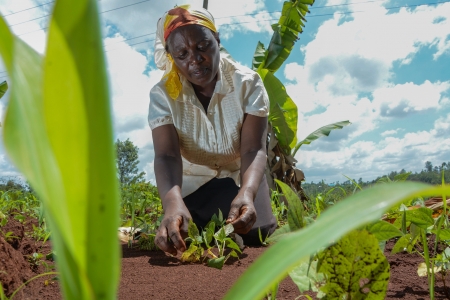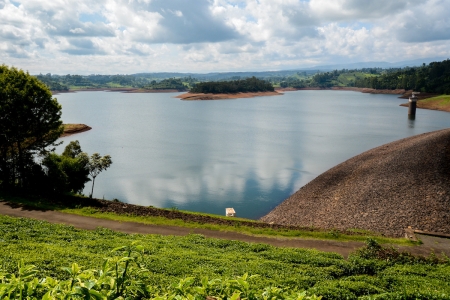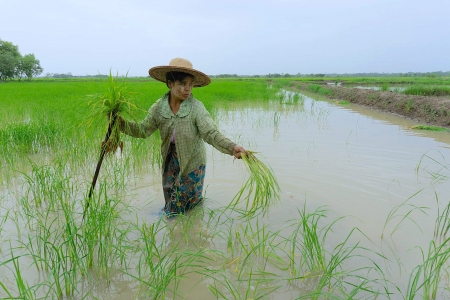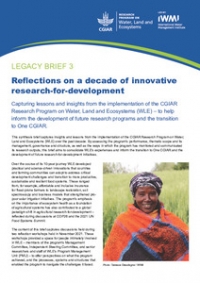No country in the world runs its economy without subsidies. Even avowedly free market states, like the US, are awash with financial fillips for everything from agriculture to green energy.
Just how effective these cash comforters are at delivering public goods, however, is hugely debateable. At their best, subsidies can protect the vulnerable, conserve the environment and redress entrenched inequity. At their worst, they create perverse incentives that benefit special interests at the expense of everyone else.
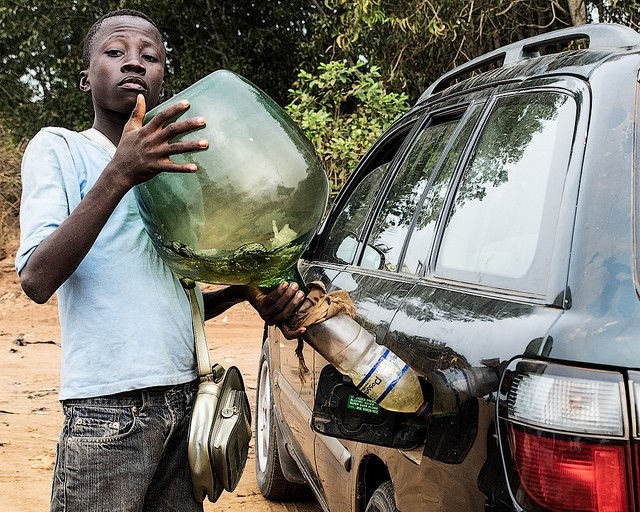 Fuel subsidies in Nigeria create a huge black market. Photo: Willem Heebaart on Flickr
Fuel subsidies in Nigeria create a huge black market. Photo: Willem Heebaart on FlickrAnd once in place, it can be hard to wean beneficiaries off the subsidy drug. Hence many commentators compare them to a form of addiction
Irrigation policy across the globe uses subsidies to incentivise farmers. Whether it is cheap energy for irrigation, or below-cost access to water, these cash comforters are usually aimed at producing as much cheap food as possible. Has this been achieved? An illuminating session at this year’s World Water Week in Stockholm suggests not. Indeed the general consensus is that subsidies have generally been ill conceived. As a result they have led to unsustainable practices and environmental degradation.
Don’t mess with our cheap fuel
The Stockholm session, Irrigation Subsidies: How to Turn from the Overuse of Water and Energy to Sustainability? kicked off with an overview of fuel subsidies by Tom Moerenhout of Canada’s International Institute for Sustainable Development.
With energy markets volatile, subsidies for petrol and diesel might seem a reasonable response - cushioning the public from extreme price fluctuations. But as fuel prices climb, politicians get caught in a bind. In Egypt for instance, up to 20% of public budget currently services the subsidy for fuel. And once acquired, the fuel subsidy habit seems impossible to break, even if the car-owning richest are the main beneficiaries. In Nigeria attempts to remove the subsidy on fuel in 2012 almost led to a “Nigerian Spring”. The situation was not helped by the fact that those responsible for law and order were also heavily involved with lucrative fuel smuggling operations, giving them little incentive to quell the protests. The subsidy survived.
“The lessons are clear,” says Moerenhout. In poor countries, particularly when there is little trust between the citizenry and those who rule over them, subsidy reform needs to be a process – you can’t achieve it with a big bang. Planners need to take steps mitigate the effects of withdrawal, paying attention to timing, and assessing impact in advance.
Putting the qat out
So how does fuel subsidy affect water consumption? Fabian Helms (BGR) and Henning Bauer (KfW) presented their analysis of the situation in Yemen, one of the world’s most water scarce countries. Here half the fuel price is subsidised ($1 cost, $0.58 sale). Population growth is surging and by this year the subsidy was costing the authorities over US$3 Billion. So in July, facing a budgetary crisis, the politicians cut the fuel subsidy to nearly zero. Shortages and riots ensued.
Production costs for irrigated crops rose sharply. But the main irrigated crop is actually qat, the mildly stimulating narcotic that is habitually chewed by millions in the gulf and Horn of Africa. In fact so much qat is grown in the Yemen, that 75% of food is imported. So removal of the subsidy had little effect on food prices, but sent qat costs skyrocketing.
So the government backed down. But this is only a holding position. The country already has an absolute scarcity of water in many areas and the population is set to double by 2035. There are huge opportunities to improve irrigation efficiency, but it would be far better for the economy and for food security if farmers focussed on vegetables. So far, however, Yemenis have shown little appetite for change.
Continuing the theme, the International Water Management Institution's Tushaar Shah presented a summary of his classic analysis of how energy subsidy severely depleted Gujarat’s groundwater. Resistance to subsidy removal was strong. Instead the state government introduced smart rationing with improved supply which led to more efficient water use and a huge growth in crop yields.
Now many Indian administrations see solar power as the answer to farm-energy shortages. It is often highly subsidised and presented to farmers as a cash crop, with assured buy back of excess power from the state.
But, says Shah, the subsidy so far is “dumb”. It is just seen as a green energy solution. A smarter approach would see solar as a water-energy environment-livelihood solution
Subsidies will undoubtedly play a major role in agriculture and natural resource management for decades to come. Smart targeting of public money may make or break the goal of sustainable intensification. Can it be done? The shock therapy approach of New Zealand’s agricultural subsidies is often cited as an exemplar. But New Zealand is not the new Yemen…
Updates from Stockholm World Water Week.



/index.jpg?itok=EzuBHOXY&c=feafd7f5ab7d60c363652d23929d0aee)


